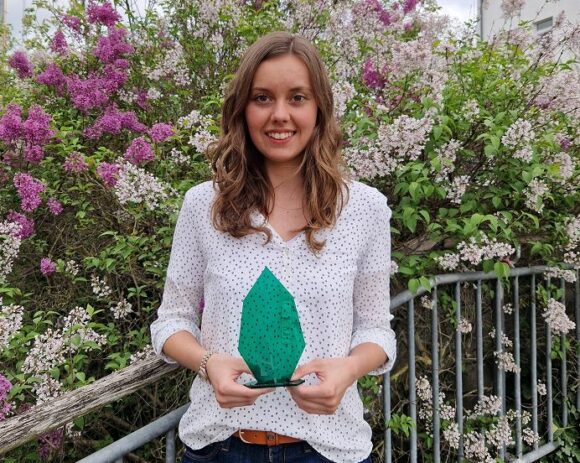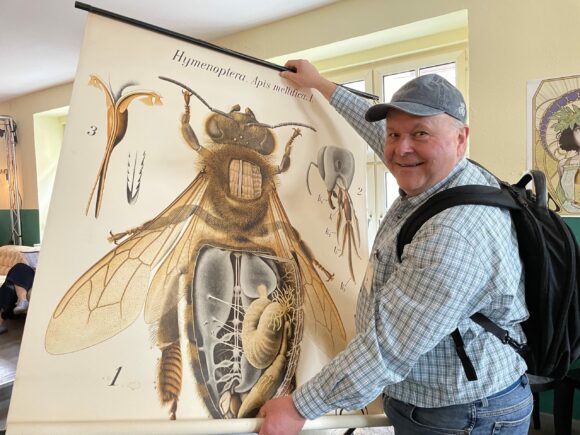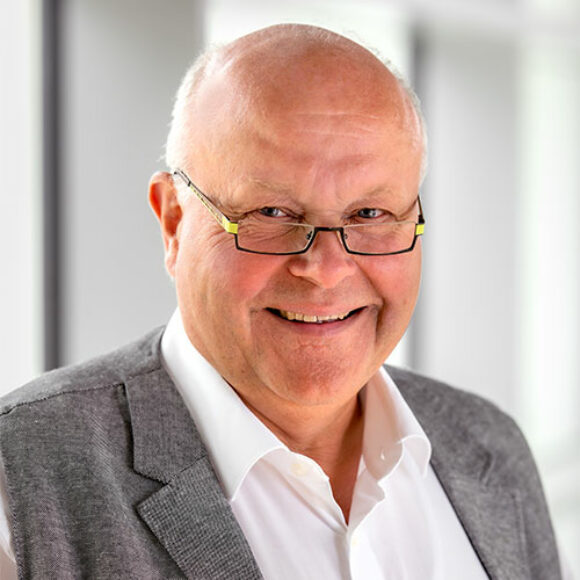The now 4th colloquium of the research institutes ibp, ifm, inwa, iisys and iwe again impressively showed the whole breadth of research at Hof University of Applied Sciences. The colloquium is intended to enable a targeted exchange between the institutes on projects and research activities once a year. In this way, cooperation opportunities are to be uncovered and scientific networking at the university is to be supported.

Dr. Natascha Kuhl (ibp), Thomas Hühnel (ifm) and Oliver Stark (iwe); Image: Hof University of Applied Sciences;
Once again, project posters and thus short descriptions of currently ongoing research activities had been submitted to all institutes in the run-up to the event. In the course of a voting, the speakers were selected, who had the opportunity to present their work during the event. The unifying element of all presentations turned out to be the major topic of sustainability.
The following projects were presented:
- ibp– Dr. Natascha Kuhl: “BioSlide”:
The aim of the project is to develop a 100% sustainable sliding surface for plant and mechanical engineering as well as for the ski, snowboard and water sports sector. Natural and biodegradable plastics and additives such as carbon black, minerals and natural waxes are to be used in the processing. Above all, the property of biodegradability is intended to combat the problem of environmental pollution caused by the microplastics produced by abrasion. The focus of product development is on sliding properties, long-term stability, a long service life and heat resistance of 80-120 degrees Celsius. In addition to the Institute for Applied Biopolymer Research, the project partner Creative Plastic Solutions (CPS) GmbH is also working on this topic.
- ifm – Thomas Hühnel: “TERA X”:
In his work at the Münchberg Campus, Thomas Hühnel is concerned with the technical radial braiding of solid wood structures. He would like to use solid wood braiding as an integral part of architecture and construction, among other things. In order to experiment here, he has a large radial braiding facility in Münchberg at his disposal, in which a maximum of 48×4 threads can be braided around a core. Willow wood, which is particularly suitable for braiding, is used here because it is flexible and grows back quickly.
- inwa – Lena Bächer: “EduLirion”:
This is about the food of the future in the form of sustainable food production. Lena Bächer deals with the soilless cultivation of plants in the field of aeroponics. In this process, the plants are nourished only by nutrient-rich water, which is available to the plant roots in the form of water mist. Corresponding research is underway with the plant sweet clover. A public science approach was chosen for the research project, including primary school children.
- iisys – Marc Lehmann: “KLIPS”:
The aim of the project, which is funded by the Federal Ministry of Digital Affairs and Transport (BMDV) as part of the “mFUND” technology program, is to localize and simulate heat islands for innovative urban and traffic planning. In this context, heterogeneous data is to be bundled in an AI-based information platform in such a way that the development of heat islands can be systematically recorded and possible constructional and planning countermeasures can be initiated. - iwe – Oliver Stark: “Concept of an energy self-sufficient Hof University”:
Oliver Stark is working on the question of how the Hof campus could become energy self-sufficient. This approach is driven not least by various legal requirements from the state and federal governments. For example, colleges and universities are to be climate-neutral by 2040. Collecting the necessary data is not easy at Hof University. On the way to a climate-neutral university, the effects of various measures such as the reduction of the university’s energy consumption by up to 30 % as well as the use of photovoltaic modules on the buildings up to the roofing of the parking lot equipped with photovoltaics are being examined.

The presentations were followed by a get-together with food and drinks in a cozy atmosphere in the foyer of the iisys. The next colloquium will take place in 2024 under the auspices of the inwa.
Background Institute Colloquium:
The Institute Colloquium at Hof University of Applied Sciences was first initiated by the ibb in 2020. Until 2020, there was an annual institute barbecue for the purpose of exchange between the institutes, where all institutes of Hof University came together to spend a few nice hours together. In order to prevent research projects from relying solely on the competencies of one’s own research institute and to take advantage of possible synergies, today’s institute colloquium was finally launched.














